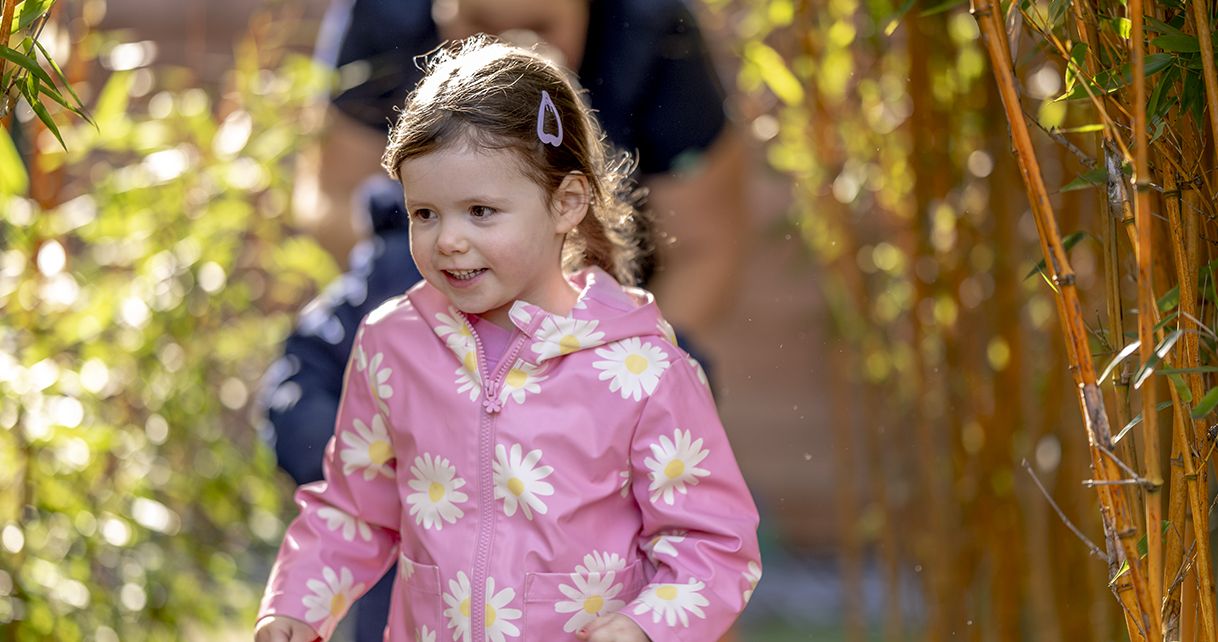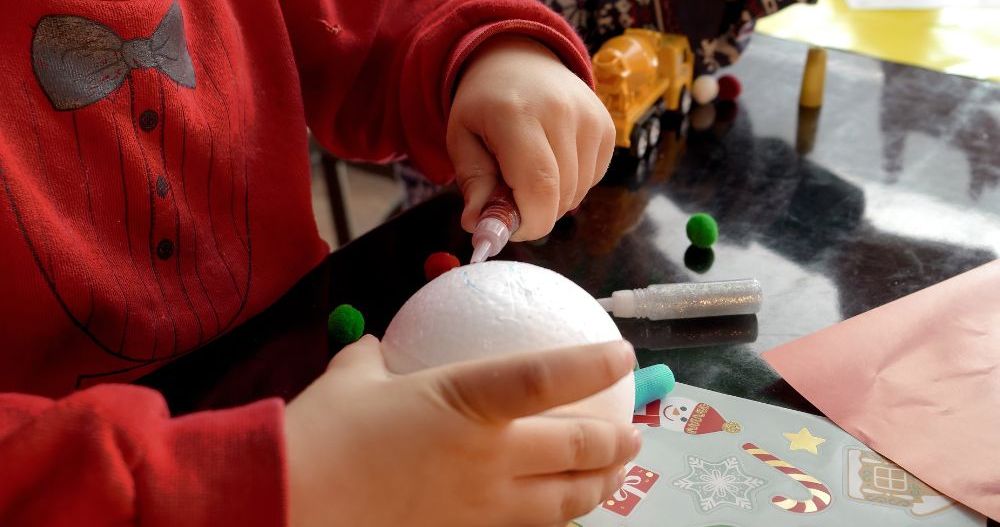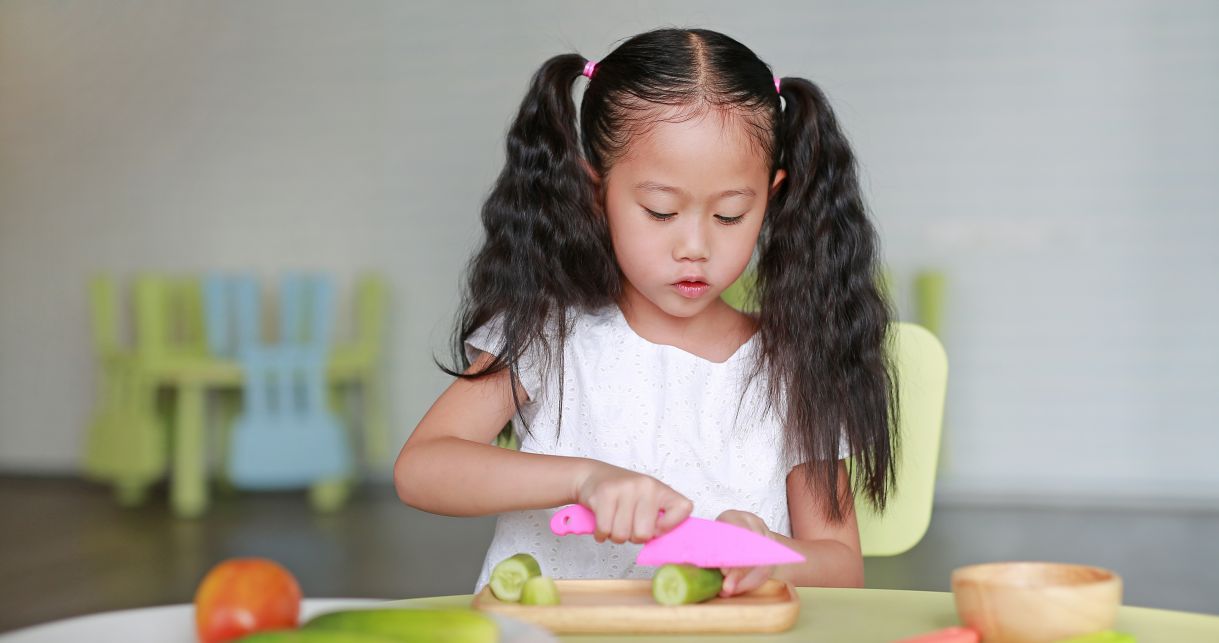6 min read
6 min read
6 min read
6 min read
You are your child’s biggest cheerleader. And you should be. From the moment they burst into your world, full of energy and curiosity, they’ll look to you for the confidence and motivation to explore the world around them.
Whether it’s exploring the magic of books, getting creative with arts and crafts, or learning about the natural world, your child will take cues from you.
Basically, if you’re enthusiastic, they’re enthusiastic.
And that, in a nutshell, is the idea that underpins the notion of parent partnership in early years. It’s a back-and-forth between you and your child’s nursery, with each party eager to get the best possible outcome for your little one.
Take, for example, sharing stories. Your child will be exposed to exciting new books at nursery, by exploring these books together at home, you’ll help your child develop a connection with the story, which will help them learn new words more quickly. It’ll keep them engaged, too as you can ask them questions, and help them with the trickier words.
But it’s easy to lose sight of this. Life is busy. And like any parent, your attention is pulled in several (read: several hundred) directions at once, so it’s only natural that you’d leave the heavy lifting to nursery staff.
You’re an expert in your child. You understand their quirks and foibles, their needs and preferences. That said, nursery staff/teachers are expertly trained to monitor your child’s academic and social development, able to quickly identify where they need a nudge.
And that’s the power of nurseries working in partnership with parents. By pooling your knowledge and understanding, you and your child’s nursery can figure out how best to support your child’s development.
They say it takes a village to raise a child. And that may be an exaggeration, but the idea of collaboration—especially in nursery settings—holds true.
That’s the theory. But what are the benefits of parent involvement in early childhood education? And why is partnership with parents important in early years?
Read on to see how you can support your child’s learning at nursery.

Let’s bust a myth, shall we? In years gone by, nursery has been viewed as a place solely for care and play, while school is for education, with the idea being that nursery is a sort of… free environment, where children don’t learn any new skills.
But it’s an outdated concept, and parents now understand that nursery is the first building block in their children’s academic and social development, with nursery staff carefully planning and structuring days to expose children to the foundational concepts that they’ll build on when they transition to school.
And that’s where parent participation is vital.
You’ve likely come across the concept of parents as partners. And that’s exactly what you need to be—an active partner in your child’s education. In recent years, there have been countless studies into the importance of parent involvement in early childhood education, each highlighting a variety of many benefits of parent partnership in early years.
Let’s unpack them, shall we?
Every child is unique and develops at their own pace. But your child’s approach to learning at home may differ from their approach at nursery, requiring you (and nursery staff) to tweak your approach to better support your child’s development.
For example, your child may be reluctant to contribute to a group discussion at nursery but openly share ideas and opinions in the comfort and security of home. By discussing this with nursery staff, this will support them to develop a learning experience that suits your child—building on their strengths for better learning outcomes.
And the reverse is true, too. Nursery staff keep a keen eye on your child’s social interactions, noting anything that stands out. By applying this information at home, you can navigate your child’s social and emotional needs, leading to a healthier, happier child.
It’s a partnership, in the truest sense. Everyone brings something to the table.
Children are emotional sponges. They soak up the attitudes and demeanours of the adults they trust. And that leads us to another key benefit of parent partnership in nursery: engagement.
As the (almost literal) centre of their universe, your child will take their social and emotional cues from you. If you’re anxious about something, they’ll pick up on and internalise that anxiety.
But the same is true of engagement. If you frame nursery as an adventure to be excited about, your little one will pick up on this, leading to greater levels of engagement, leading to stronger academic outcomes.
Moreover, by staying involved in your child’s nursery journey, you’ll become more attuned to their emotional state on a day-to-day basis, making it easier for you and nursery staff to identify and manage any anxieties that your child experiences.

Parent partnership in early years is essential to children’s academic, social, and emotional development. But it can feel overwhelming—something that gets caught up in the whirlwind of work, chores, and responsibilities.
So, how can you support your child in early years?
Well, you might:
Reading with your children is, perhaps, the biggest joy of parenthood. There’s no feeling quite like seeing your child squealing with laughter, or rapt with tension as you regale them with tales of wizards, princesses, pirates, dragons, and hungry caterpillars.
But more than the fizzy feeling in your chest, reading with your child is a fantastic type of parent partnership in early years, as you’ll be supporting their literacy development—one magical quest at a time.
If you’re stuck for recommendations, ask nursery staff which books your child is intrigued by during the day and read those, asking them questions as you go.
And yes, you must do the voices. We don’t make the rules.
Need some extra tips to bring storytelling to life? We’ve got you.
Perhaps the simplest (and most fun!) way to get involved in your child’s nursery journey is to understand what’s being taught at nursery and find fun, engaging ways to support at home.
But don’t worry, you don’t need to plan anything complex. Simply keep your eyes peeled for opportunities to weave the ideas your little one has been exposed to into your everyday life.
For example, if at nursery your child is learning about floating and sinking, you could talk about this at bathtime, perhaps incorporating it into your play. Ask them simple questions, have some fun with basic demonstrations. By doing so, you’ll reinforce what they’ve learned and gain a stronger understanding of your little one’s strengths, which you can feedback to nursery staff.
You might also find ways to incorporate things your child is doing nursery into other areas of your everyday life. It could even be as simple as asking them to match socks when putting away laundry or developing their physical skills by getting them to jump over muddy puddles on a rainy walk to the shops.
You could also ask nursery staff what types of games and activities your little one has been enjoying and play them at home. Your enthusiasm will rub off on your child, leading to more engagement at nursery.
The idea of supporting your child’s learning can seem daunting, but by understanding what your little one is focusing on at nursery, and weaving that support into everyday activities, you’ll offer your child another chance to develop their skills at home.
And they won’t even realise they’re learning.
Are you really a parent until you’ve tasted your child’s imaginary tea? It’s a parental rite of passage, up there with setting a space at the table for an imaginary friend or being the diner in their latest imaginary restaurant.
But fun as it is, it’s more than just idle play. Role play is a common activity at nursery—from kitchen corners to hospital setups and beyond. It allows children to develop their understanding of the wider world in a safe space, as well as express themselves creatively.
It may feel silly at first, but by fully engaging in the restaurant/shop/hospital (delete as applicable) you’ll encourage your child’s development and gain a clearer picture of their level of understanding—which you can feed back to nursery staff, who can tweak the type of support they offer during the day.
Imaginative play also presents an opportunity for you (and nursery staff) to gain a better understanding of your child’s academic development. For example, if your child is role playing ‘shopkeeper’, you can start introducing some simple language related to numbers.
Check out our blog on nurturing your child’s creativity for some handy tips and tricks to get the most out of imaginative play time.

Whether it’s developing a clear picture of your child’s academic strengths, supporting their social development, or simply becoming more attuned to their emotional needs, parent partnership in early years offers you the opportunity to work with nursery staff to curate a supportive, nurturing experience for your child.
Need a little more child development advice? Check out our blog, which is packed with tips and hacks on everything from fine motor skills activities to getting your little one ready for potty training.
by Busy Bees
Published: 12/03/2025
Share Blog

by Busy Bees 26/01/2026
10 min read

by Busy Bees 01/12/2025
5 min read

by Busy Bees 01/12/2025
5 min read

by Busy Bees 27/11/2025
6 min read

by Busy Bees 25/11/2025
7 min read